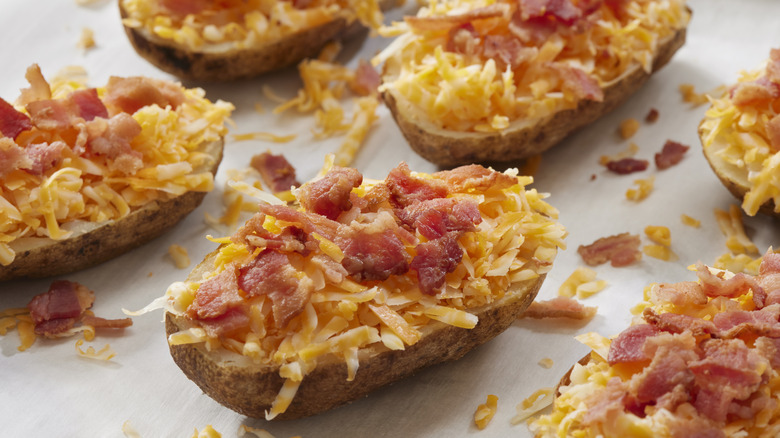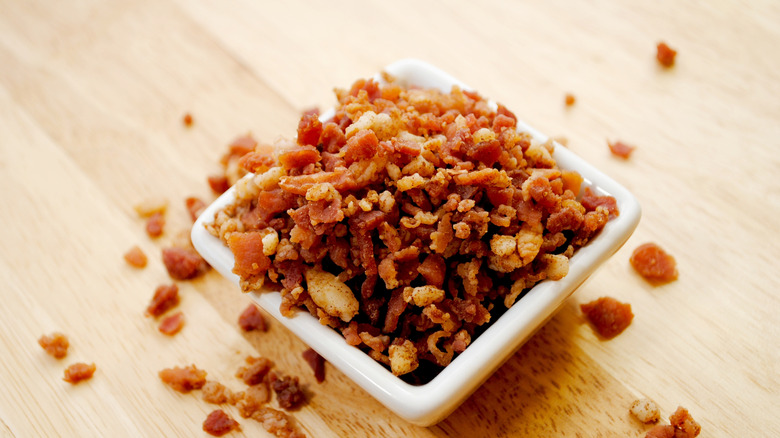Are Bacon Bits Actually Made From Pork?
Juicy and versatile, pork allows for a variety of delicious recipes that meat lovers enjoy cooking (and eating!). Who could say no to simmered carnitas tacos or a roast pork belly? But, sometimes, all you want is a bit of pork to garnish a meal rather than having it be the star of the evening. This is where bacon bits come in handy, elevating dishes like deviled eggs, loaded potatoes, pasta carbonara, and salads. It's possible to make bits at home, but many people opt for store-bought products that can last longer, and that are readily available.
Perhaps because of their popularity, store-bought bacon bits have been at the center of culinary controversy, with some consumers wondering whether they're made from real bacon. The question seems to have stemmed from the fact that bits don't have to be refrigerated, as well as growing skepticism surrounding ingredients in manufactured products.
This isn't the first time that pork has been scrutinized: There was also a (debunked) culinary conspiracy theory that Aldi's bacon was lab-grown. While some of these fears have turned out to be unfounded, people simply want to know that they're actually eating what they think they're eating. If you've been wondering this, the answer is that, yes, bacon bits are made with real bacon ... most of the time.
If the label says bacon, it's bacon
According to the USDA, it's illegal for companies to use the term "bacon" for products that do not contain pork belly. This makes it easy to know if your bacon bits are real. If the label says it, then you have your answer. As for the question of how bacon bits last longer, and often don't require cold storage, it's just because the meat is cured.
However, some companies do offer vegan and kosher alternatives that mimic the taste and texture of pork-based bits. These are usually made with soy, and while not bonafide bacon, they're likewise regulated by the USDA and perfectly safe to consume.
While it's great to see products catering to folks who don't consume animal products, carnivores remain the market majority, as evidenced by the wide availability of bacon strips, bacon bits (a tablespoon of which is equal to 1½ strips), as well as Beyond Meat's ongoing financial woes. So if you want to make sure that you're eating real bacon, pay attention to the wording on the container. When in doubt, check the ingredients.
Some of the best-known brands that use pork for their bits include Oscar Mayer Real Bacon Bits, Epic Uncured Hickory Bacon Bits, and HORMEL® Real Bacon Bits. If, on the other hand, you want to cook a meatless dish, you can look for McCormick Bac'n Pieces (notice how the brand doesn't use the full word). Made with soy flour and flavored to imitate real bacon, depending on the application, you might not notice as much difference as you think.

